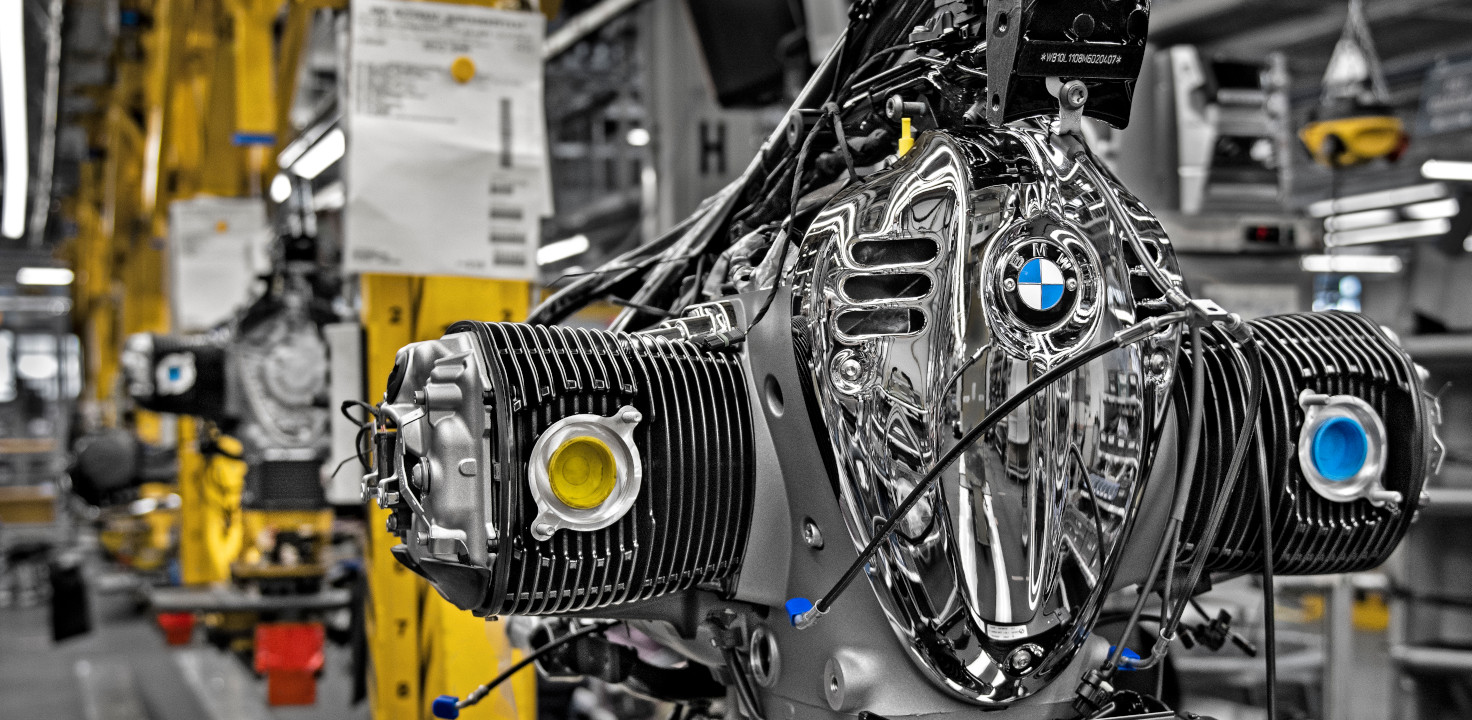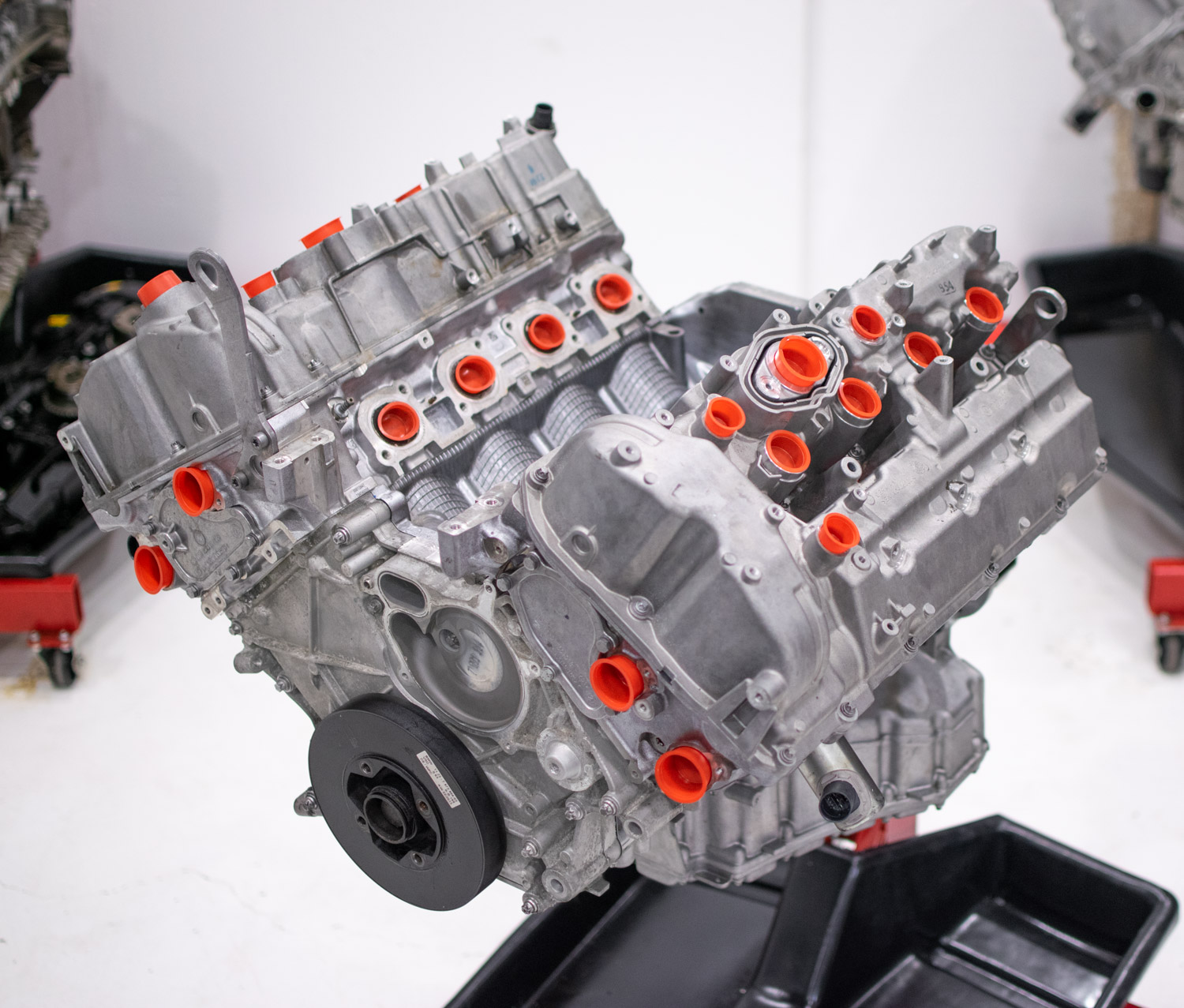Unveiling the Secrets Behind the Power of the BMW Engine
Unveiling the Secrets Behind the Power of the BMW Engine
Blog Article
Introducing the Intricacies of Next-Generation Power Units: a Deep Study Advanced Engine Designs and Innovations
As we stand on the precipice of a new period in transportation, the intricacies of next-generation engine layouts beckon us to discover the cutting-edge modern technologies and developments that assure to redefine the driving experience. Digging deeper right into the worlds of emission control, intelligent engine administration systems, and the horizon of power system advancement, we find ourselves on the cusp of a makeover that guarantees to improve the landscape of movement as we recognize it.
Evolution of Engine Materials

The change in the direction of advanced engine materials has likewise made it possible for engineers to develop engines with higher power outcomes while keeping gas efficiency standards. For instance, making use of light-weight products reduces the overall weight of the engine, resulting in enhanced fuel economic situation and reduced exhausts. In addition, advancements in materials technology have permitted better thermal management within engines, resulting in increased reliability and longevity.
Turbocharging and Supercharging Technologies
How do Turbocharging and Supercharging Technologies revolutionize engine efficiency and effectiveness in modern vehicles? Turbocharging and turbo charging are technologies that significantly improve engine performance by raising the quantity of air intake right into the combustion chamber. Turbocharging achieves this by making use of a wind turbine driven by exhaust gases to pressurize the intake air, while turbo charging uses a belt- or chain-driven compressor to attain the exact same effect.
These innovations allow smaller, extra fuel-efficient engines to generate power comparable to bigger ones, referred to as downsizing. By requiring even more air into the cyndrical tubes, turbocharging and turbo charging enhance burning efficiency, causing enhanced horse power and torque output without a considerable increase in engine size. This brings about much better acceleration, lugging capacity, and total driving performance.
Furthermore, turbocharging and turbo charging add to boosted fuel effectiveness by permitting the use of smaller engines that eat much less fuel under typical driving problems - bmw engine. This mix of enhanced performance and performance has actually made turbocharging and supercharging essential parts of many modern engine styles
Exhaust Control and Environmental Influence
With increasing worldwide worries regarding air high quality and ecological sustainability, the execution of exhaust control technologies in cars plays a vital duty in reducing hazardous contaminants released into the environment. Modern automobiles are outfitted with sophisticated emission you can try here control systems that help minimize the environmental impact of automobile operations. Catalytic converters, for example, are developed to convert harmful gases such as carbon monoxide, nitrogen oxides, and hydrocarbons into less damaging compounds like co2 and water vapor.
Moreover, innovations in engine modern technology, such as the assimilation of exhaust gas recirculation systems and discerning catalytic decrease, have actually substantially added to reducing discharges. These innovations work in tandem to enhance combustion efficiency and lessen the release of hazardous pollutants into the air. Additionally, the development of hybrid and electrical automobiles represents a critical action towards reducing the overall ecological footprint of the transportation field.
Intelligent Engine Administration Systems

In addition, these systems allow cars to fulfill rigid emissions criteria without compromising efficiency, offering an extra ecologically pleasant driving experience. The combination of expert system and artificial intelligence capabilities in engine monitoring systems continues to push the borders of what is possible, bring about further renovations in efficiency, dependability, and total automobile performance. bmw engine. As automobile technology developments, intelligent engine administration systems will certainly play a vital role in forming the future of transportation in the direction of a more reliable and lasting instructions
Future Trends in Power System Growth
As intelligent engine monitoring systems lead the way for improved control and optimization in modern-day vehicles, future patterns in power system growth more tips here are positioned to redefine the landscape of automotive propulsion innovations. One of the crucial fads driving advancement in power device growth is the change in the direction of electrification. With an enhancing concentrate on sustainability and lowering carbon exhausts, crossbreed and electrical powertrains are becoming more prevalent in the automobile market. These alternate power resources use enhanced effectiveness and efficiency while straightening with rigid ecological guidelines.
One more considerable trend is the integration of innovative products and producing techniques. Light-weight products such as carbon fiber and aluminum are being utilized to lower general car weight, enhancing gas effectiveness and performance. Additionally, advancements in 3D printing and additive production are allowing the production of intricate engine elements with higher accuracy and toughness.
Moreover, synthetic intelligence and artificial intelligence are playing a crucial function in optimizing power device performance. These modern technologies enable real-time monitoring and flexible control, resulting in much more reliable and reliable power delivery. In general, future fads in power system growth are geared towards effectiveness, sustainability, and efficiency, driving the vehicle sector towards a new period of propulsion innovations.

Conclusion
In final thought, the innovations in engine products, turbocharging, emission control, and intelligent administration systems have actually led the means for next-generation power units. The elaborate styles and advancements in modern-day engines display the ongoing evolution of automobile innovation.
Discovering the dynamic innovations in engine products has actually been pivotal in enhancing the performance and efficiency of modern engines. Over the years, the development of engine materials has played an important function in pushing the limits of what engines can accomplish.The shift towards advanced engine materials has also enabled engineers to develop engines with higher power outputs while maintaining fuel effectiveness requirements.The application of intelligent engine monitoring systems in modern-day cars has actually reinvented the method engines are managed and optimized for performance and performance. By accumulating information in real-time and examining it with advanced algorithms, intelligent engine management systems can adjust to driving designs, environmental elements, and engine health to take full advantage of power output while minimizing fuel consumption and emissions.
Report this page